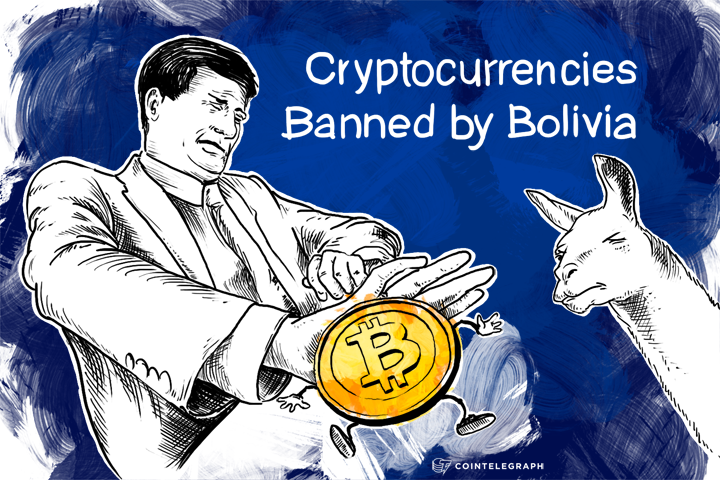Widespread acceptance of Bitcoin and cryptocurrencies suffered another blow this week when El Banco Central de Bolivia outright banned any currency or coins that were not either issued by or regulated through the government. The bank specifically mentioned Bitcoin, Quark, Peercoin, Namecoin, Primecoin and Feathercoin in the announcement but the statement seemed to include all cryptocurrencies.
The policy actually went into affect but the announcement did not surface for general consumption until PanAm Post, a Spanish language media outlet, released the news. The statement from the central bank was simple in its essence:
“It is illegal to use any kind of currency that is not issued and controlled by a government or an authorized entity.”
The bank also said that citizens of Bolivia were prohibited from denominating prices in any non-approved currencies. The bank’s move seems to be preemptive i.e. done to protect the boliviana, Bolivia’s national currency and, of course, to protect users from losing their money because of uncontrolled currencies.
Bolivia Stands Out
The two largest economies in South America, Brazil and Argentina are both permissive toward cryptocurrencies and most of the rest of the continent has been silent on the issue. There was a rumor in March of 2014 that Superintendencia Financiera de Colombia (SFC), Colombia’s central bank was considering a ban on Bitcoin but instead of an outright ban the government decided to follow China’s lead and simply prohibit banks from doing business with any cryptocurrency companies. Thailand and Russia have been flirting with the same idea for some time now.
The South American Business community is split on this most recent development and what it could mean for the future of Bitcoin in South America. One notable member of the community in Latin America is Christian Nubis, currently chief product officer at Bitex.la, a recently launched Latin American cryptocurrency exchange, believes that the announcement will have at worst a minor effect because Bolivia is simply too small a player. But Sebastian Serrano, CEO of Argentina bitcoin merchant processor BitPagos, believes that the move could cause a great deal of uncertainty in the market.
